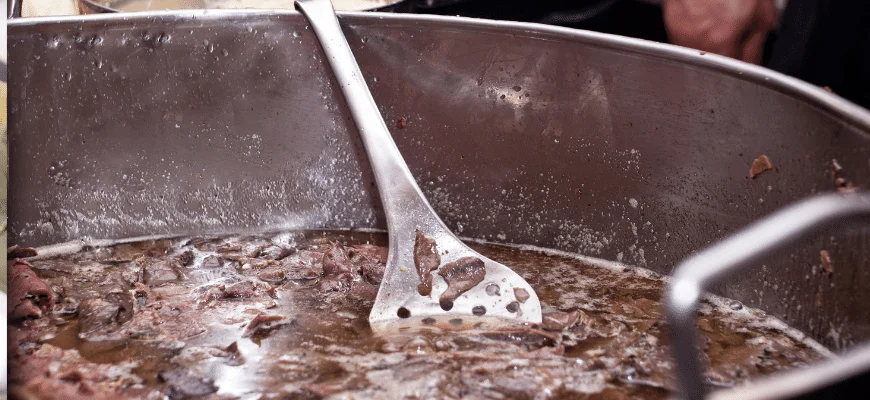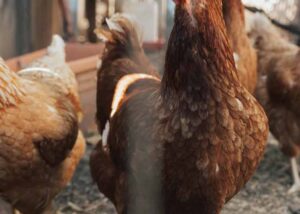Quran
Hadith
Islamic Text
بِسْمِ اللَّهِ الرَّحْمَنِ الرَّحِيمِ
In the Name of Allah Most Merciful Most Kind
Short Answer
I am not aware of an authentic Hadith proving the blessed Prophet ﷺ did eat cow meat (beef). However, there is a Sahih Hadith proving the Prophet encouraging the eating of cow meat (beef).
Hadith
فَلَمَّا كُنَّا بِمِنًى، أُتِيتُ بِلَحْمِ بَقَرٍ، فَقُلْتُ: مَا هَذَا؟ قَالُوا: ضَحَّى رَسُولُ اللَّهِ صَلَّى اللهُ عَلَيْهِ وَسَلَّمَ عَنْ أَزْوَاجِهِ بِالْبَقَرِ
Sayidah Ayeshah (May Allah Most High be pleased with her) said, when we were in Mina, cow meat (beef) was brought to me. I said, what is this? They said, the Messenger of Allah ﷺ sacrificed cows on behalf of his wives. (Sahih al-Bukhari, 5548).
Although the above Hadith does not specifically mention that the blessed Prophet ﷺ ate cow meat (beef), it does demonstrate that the Prophet ﷺ encouraged others to eat it. The fact that hadith demonstrates that the Prophet ﷺ initially slaughtered the cow meat proves that it is fine to consume. Further, the meat was then sent to Sayidah Ayeshah to eat which indicates that it is encouraged to consume.
Any Hadith narrations discouraging the consumption of cow meat (beef), such as the ones below, must be considered in light of the above authentic narration:
إِنَّ رَسُولَ اللهِ صَلَّى اللهُ عَلَيْهِ وَسَلَّمَ، قَالَ: أَلْبَانُهَا شِفَاءٌ، وَسَمْنُهَا دَوَاءٌ، وَلُحُومُهَا دَاءٌ
Indeed, the Messenger of Allah ﷺ said, ‘Its milk is a cure (Shifaa). Its fat is medicine (Dawaa). And its meat is an ailment.’ (al-Mu’jam al-Kabeer al-Tabarani, 79).
This narration is also found in the Maraseel of Abi Dawood (444). Both narrations have an unidentified person in the chain. Therefore, the narrations are weak. As for the narration in Hakim, it is weaker still.
النَّبِيِّ صَلَّى اللهُ عَلَيْهِ وَسَلَّمَ، قَالَ: عَلَيْكُمْ بِأَلْبَانِ الْبَقَرِ وَسُمْنَانِهَا، وَإِيَّاكُمْ وَلُحُومَهَا فَإِنَّ أَلْبَانَهَا وَسُمْنَانُهَا دَوَاءٌ وَشِفَاءٌ وَلُحُومُهَا دَاءٌ
The Prophet ﷺ said, ‘Consume the milk and fat of cows. However, beware of its meat. Indeed, its milk and fat are medicine and a cure. Its meat is illness.’ (Hakim, 8232).
Imam al-Dhahabi mentioned that one of the narrators, Saif bin Miskeen, in the above is considered to be very weak.
Classical scholars
وليس في سنده من ينظر في حاله، إلا المرأة التي لم تسم، فيضعف الحديث بسببها، لا سيما وقد صح أن النبي صلى الله عليه وسلم ضحى عن نسائه بالبقر وهو لا يتقرب بالداء. (الأجوبة المرضية)
There is no one in the chain whose state needs to be looked into, except for the woman who is unnamed. Therefore, the Hadith is weak due to her. Furthermore, it is authentically narrated that the Prophet ﷺ sacrificed on behalf of his wives, and he would not worship (Allah Most High by sacrificing something) with an ailment. (Imam al-Sakhaawi, al-Ajwibah al-Murdi’ah).
Explanation
From the hadith narrations above, the narration in Bukhari alludes to the Prophet ﷺ encouraging it eating cow meat (beef). However, the other hadith narrations are weak or extremely weak, and they also seem to contradict the hadith in Bukhari as they mention that the blessed Prophet ﷺ warned against it.
Furthermore, in the Nass above, Imam al-Sakhaawi raises the concern of the weak narrations contradicting that which is established in Sahih al-Bukhari. Therefore, after considering the relevant evidence the conclusion is that the blessed Prophet ﷺ encouraged consuming beef (cow meat). Although this does not categorically prove that the Prophet ﷺ himself ate cow meat, it does prove that Muslims should not have a religious aversion to it.
And Allah Most High Knows Best.
–Answered by Shaykh Noorud-deen Rashid (12.05.23)






